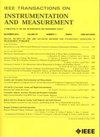低可观测性条件下 GNSS-蜂窝机会信号的融合定位
IF 5.6
2区 工程技术
Q1 ENGINEERING, ELECTRICAL & ELECTRONIC
IEEE Transactions on Instrumentation and Measurement
Pub Date : 2024-10-23
DOI:10.1109/TIM.2024.3485434
引用次数: 0
摘要
蜂窝机会信号(CSOPs)可用作城市中全球导航卫星系统(GNSSs)的备用定位系统。目前关于 GNSS-CSOPs 融合的研究需要足够的信号。然而,在可见信号总数不超过四个的低可观测性环境中,现有的 GNSS-CSOPs 伪距融合方法缺乏稳健的策略,性能较差。此外,GNSS-CSOPs 并非时空同步,目前的研究尚未考虑到这一点。此外,GNSS-CSOP 伪距测量噪声在运动学接收器下表现出差异,现有的加权方法还没有很好地解决这一难题。针对上述问题,本文提出了一种在低可观测性条件下基于迭代扩展卡尔曼滤波器(IEKF)的新型 GNSS-CSOP 融合定位系统,并对可观测性程度进行了分析。在该系统中,研究了时空异步性的影响。然后,提出了一种 Helmert 单位方差估计(HUVE)算法,用于获取 GNSS-CSOP 融合中的测量权重。此外,还提出了一种双狗腿增量估计(DDIE)算法,以提高在低可观测性条件下求解时的收敛性。实地测试结果表明,在低可观测性条件下,拟议系统的定位精度可达到约 6.5 米。与其他最先进的研究相比,如信号功率加权法、准牛顿法(QN)、Levenberg-Marquardt 法(LM)和 Dog-leg 法,拟议系统的性能分别提高了 62.4%、82.4%、72.9% 和 64.7%。本研究为低可观测性环境中的 GNSS-CSOP 提出了一种新型融合定位策略。本文章由计算机程序翻译,如有差异,请以英文原文为准。
Fusion Positioning of GNSS-Cellular Signals of Opportunity Under Low Observability
Cellular signals of opportunity (CSOPs) can be utilized as a backup positioning system for global navigation satellite systems (GNSSs) in urban. Current studies on the fusion of GNSS-CSOPs require sufficient signals. However, in low-observability environments where the total number of visible signals does not exceed four, the existing GNSS-CSOPs pseudorange fusion methods lack robust strategies and have poor performance. In addition, GNSS-CSOPs are not spatiotemporally synchronized and have not yet been considered by current studies. Moreover, GNSS-CSOPs pseudorange measurements noise exhibit differences under the kinematic receiver, and this challenge has not been well dealt with by the existing weighting methods. To address the above-mentioned issues, a novel fusion positioning system based on an iterated extended Kalman filter (IEKF) for GNSS-CSOP is formulated under low observability, and the degree of observability is analyzed. In this system, the influence of spatiotemporal asynchronicity is addressed. Then, a Helmert unit variance estimation (HUVE) algorithm is proposed to obtain the measurement weights in GNSS-CSOPs fusion. Moreover, a double Dog-leg incremental estimation (DDIE) algorithm is proposed to enhance convergence when solving under low observability. In field tests, results show that the positioning accuracy of the proposed system can reach approximately 6.5 m under low observability. Compared with other state-of-the-art studies, such as weighting with power-of-signal, quasi-Newton (QN), Levenberg-Marquardt (LM), and Dog-leg methods, the performance of the proposed system has been improved by 62.4%, 82.4%, 72.9%, and 64.7%, respectively. This study presents a novel fusion positioning strategy for the GNSS-CSOP in low-observability environments.
求助全文
通过发布文献求助,成功后即可免费获取论文全文。
去求助
来源期刊

IEEE Transactions on Instrumentation and Measurement
工程技术-工程:电子与电气
CiteScore
9.00
自引率
23.20%
发文量
1294
审稿时长
3.9 months
期刊介绍:
Papers are sought that address innovative solutions to the development and use of electrical and electronic instruments and equipment to measure, monitor and/or record physical phenomena for the purpose of advancing measurement science, methods, functionality and applications. The scope of these papers may encompass: (1) theory, methodology, and practice of measurement; (2) design, development and evaluation of instrumentation and measurement systems and components used in generating, acquiring, conditioning and processing signals; (3) analysis, representation, display, and preservation of the information obtained from a set of measurements; and (4) scientific and technical support to establishment and maintenance of technical standards in the field of Instrumentation and Measurement.
 求助内容:
求助内容: 应助结果提醒方式:
应助结果提醒方式:


